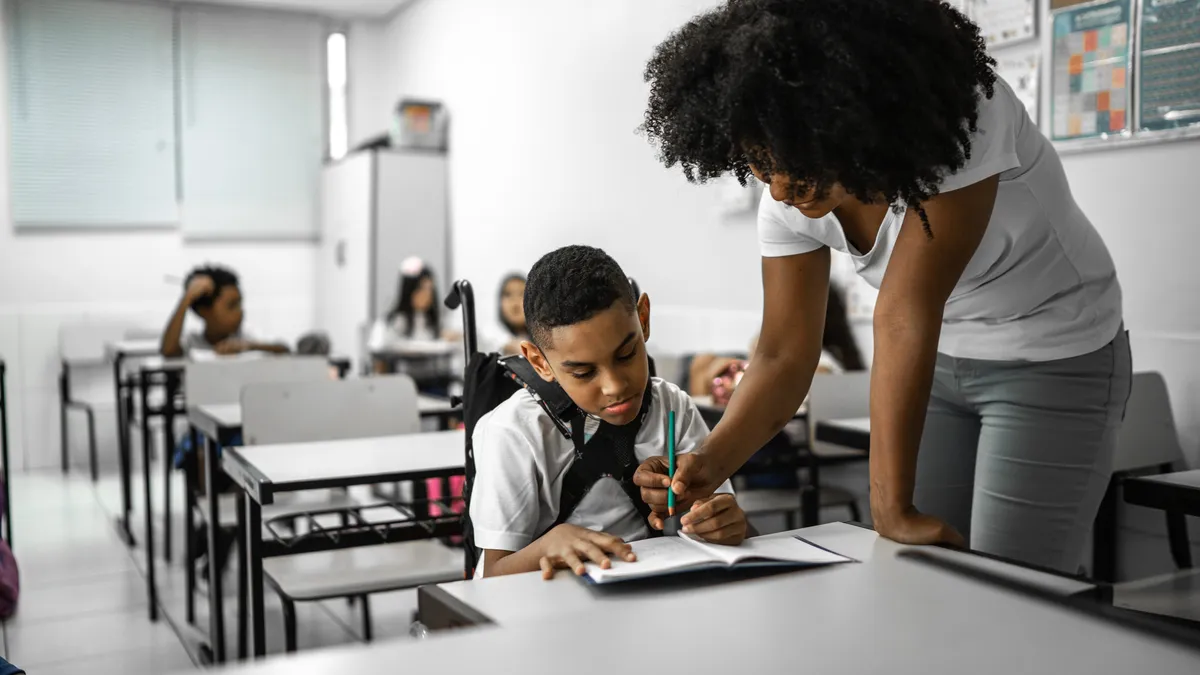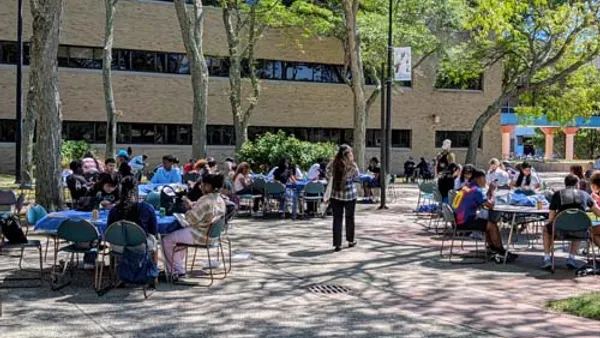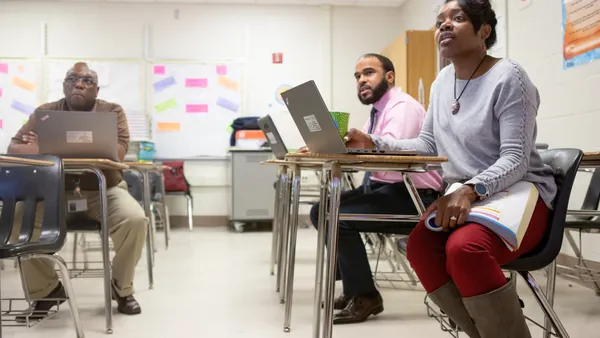Dive Brief:
- First-year teachers need intentional, high-quality support to navigate the complexities of adjusting to a completely new school and classroom environment. “If first-year teachers don't feel supported, and if they don't feel effective with their students, they will leave,” said Heather Peske, president of the National Council on Teacher Quality.
- Some 8% of public school teachers left the profession during the 2021-2022 school year, and another 8% moved to a teaching position at another school, according to the most recent data available from the National Center for Education Statistics.
- To help with retention, school leaders need to create a welcoming environment where teachers can build relationships with students, families and other educators, and become comfortable reaching out for help when they need it, said Peske.
Dive Insight:
According to Peske, most first-year teachers enter the field unprepared for the realities of the classroom. That's because teacher preparation programs rarely provide high-quality feedback or opportunities for students to teach in schools similar to where they will be working, she said.
That's due to not all pre-service teachers having access to high-quality teacher preparation instruction, which leads to novice teachers entering the classroom with different levels of experience.
Despite this lack of preparation, however, Peske said first-year teachers are more likely to succeed when they have access to the following resources:
- High-quality curriculum: One way states and districts can help set first-year teachers up for success is by adopting high-quality curriculum materials, Peske said. When the curriculum is not well-designed, teachers spend more time trying to create lessons with poor-quality resources.
- Professional Learning: Strong professional learning needs to be aligned with the curriculum, occur frequently and regularly, and involve collaboration with other teachers, said Peske. She said professional learning that only happens once or twice before school starts is not effective, as teachers will encounter challenges and problems throughout the year that they’ll need assistance solving.
- Mentors: Peske also recommends that principals pair first-year teachers with experienced teachers who lead classes in the same or similar content, to serve as mentors for at least two years. She said the research shows this has a positive effect on teacher retention as not only do teachers get to learn from viewing others, but it strengthens their relationship with the school community.
- Clear expectations: To meet teaching expectations and standards, new teachers need to know what these are. Peske said principals should provide clear and specific communication around what the expectations are for instruction, participation in faculty meetings and any additional duties.
Peske added that principals should avoid overwhelming first-year teachers and instead focus on building structures into the school day that grant new teachers the time to plan and think about their instruction and collaborate with other teachers.





 Dive Awards
Dive Awards







